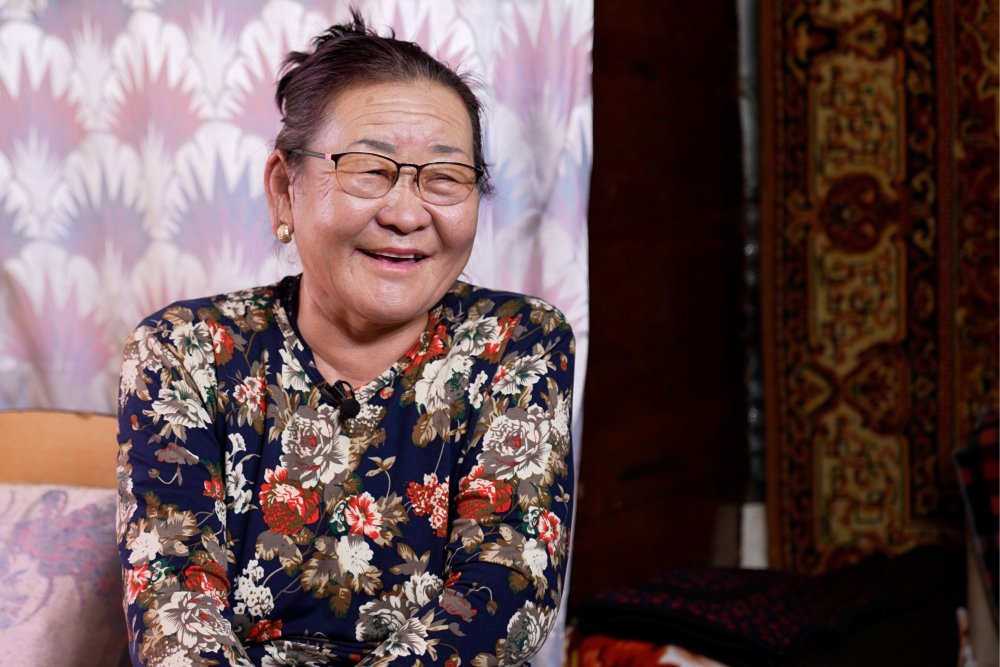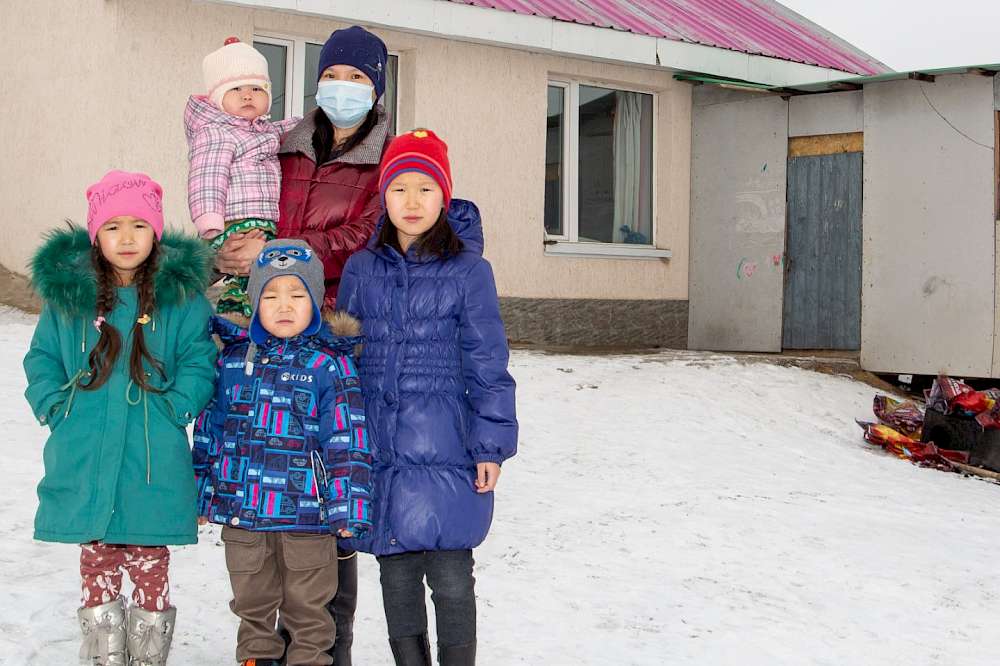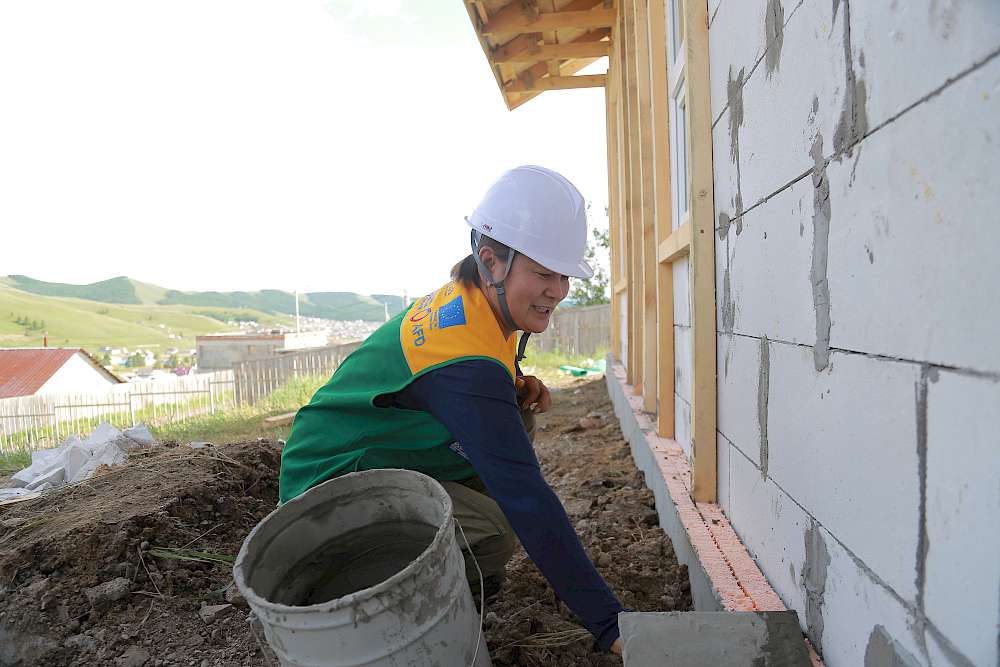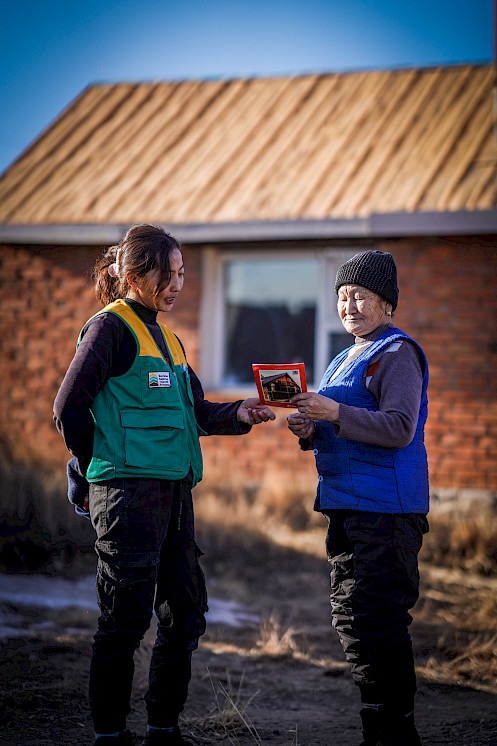
Air pollution is one of the most pressing challenges in Mongolia, especially in the capital city Ulaanbaatar, where half of the country’s population lives. Winters are extremely harsh, with temperatures dropping to -35°C and households needing heating for up to nine months of the year. In the ger districts, where families live in modest houses with little or no insulation, coal is the main source of heat. These chimneys account for more than half of Ulaanbaatar’s total air pollution, worsening health problems and driving up household expenses.
The EU-funded Switch Off Air Pollution in Mongolia’s Cities (SOAP II) project, implemented under the SWITCH-Asia Programme, is addressing these challenges. Its core approach is straightforward: insulating homes to reduce coal consumption, lower emissions, and improve air quality, while also building the financial, technical, and community systems needed for long-term change.
Affordable and Scalable Solutions
Since 2018, SOAP II has developed two complementary approaches to promote insulation:
The Insulation Market Delivery Model creates a “one-stop shop” that connects material suppliers, financial institutions, trained insulation brigades, and energy auditors. For households, the process is simple: with one call to the project’s call center, they can access the full range of services needed to insulate their homes.
In parallel, the Simple Solutions Campaign empowers households to take action themselves. Residents receive training on how to use affordable, locally available materials to insulate their homes through a do-it-yourself model. As one resident, Erdenechimeg, explained: “I heard from my neighbor that I could insulate my house using simple materials. I tried the Simple Solutions, and my home became noticeably warmer.”
These small improvements add up quickly. “After insulating our house, we experienced real economic savings, and it became much more comfortable during winter. Our children can now run barefoot on the floor and play freely,” said Amarzaya, another resident.


Results and Impact
The project’s reach has steadily expanded. To date, 2,711 households have adopted affordable insulation measures, and an additional 498 households received roof insulation as an incentive for encouraging their neighbors to join. SOAP II also expanded to Darkhan-Uul province, where 320 households participated in campaign activities and 27 local workers were trained as an Insulation Brigade and Advisors.
SOAP II has also showcased larger-scale solutions, such as a Nearly Zero Energy Building (nZEB) demonstration house that integrates advanced insulation, heating, and ventilation technologies. At the same time, more than 160 MSMEs have been trained in insulation and energy efficiency, including safety, waste management, gender protection, marketing, and business skills. This helps build a professional workforce in the construction sector that can deliver high-quality insulation services.
For brigade member Oyubinderiya, this has opened up new opportunities: “I appreciate the Switch Off Air Pollution project for supporting women in the construction sector and providing equal opportunities.”
The project has also been active in public outreach, reaching 1.9 million people nationwide through social media, expos, and the dedicated platform www.dulaalga.mn.


Contribution to the EU Global Gateway
While not directly designed as a Global Gateway initiative, SOAP II also contributes to the EU’s Global Gateway strategy, which supports sustainable and resilient connections around the world. By promoting affordable insulation in Mongolia, the project helps households reduce their reliance on coal, improve health, and lower costs, directly advancing the Global Gateway’s objectives of a green transition and better quality of life. Moreover, through its support for small businesses, creation of skilled jobs, and demonstration of innovative insulation markets, SOAP II shows how Global Gateway partnerships can deliver practical results on the ground, bridging environmental goals with social and economic benefits.
Looking Ahead
SOAP II continues to demonstrate that simple, affordable insulation measures can deliver significant benefits for families and cities. Looking forward, the project will:
- Finalize studies on green financing and expand access to energy efficiency loans.
- Develop a knowledge-sharing toolbox with lessons, best practices, and guidance for government agencies, financial institutions, NGOs, sector workers, and households.
- Continue advocacy with national and municipal authorities to integrate energy efficiency solutions into policy frameworks.
As Mongolia pursues its national goals on pollution reduction and climate resilience, SOAP II offers a practical, community-driven model for sustainable urban development.


